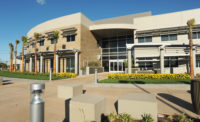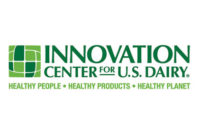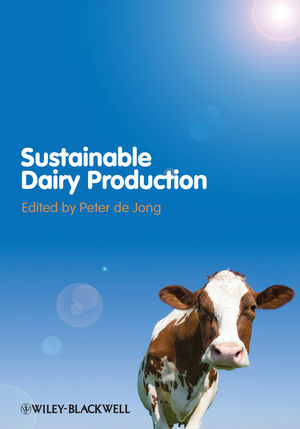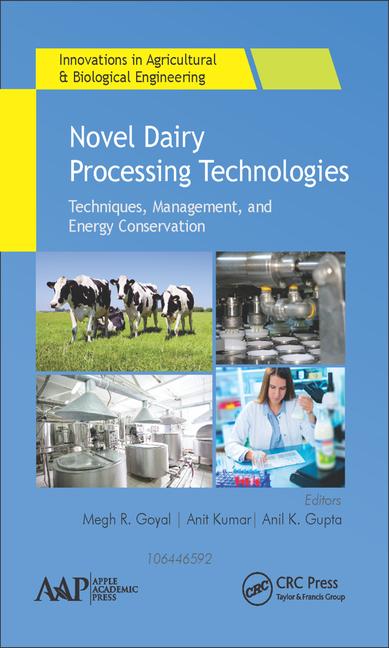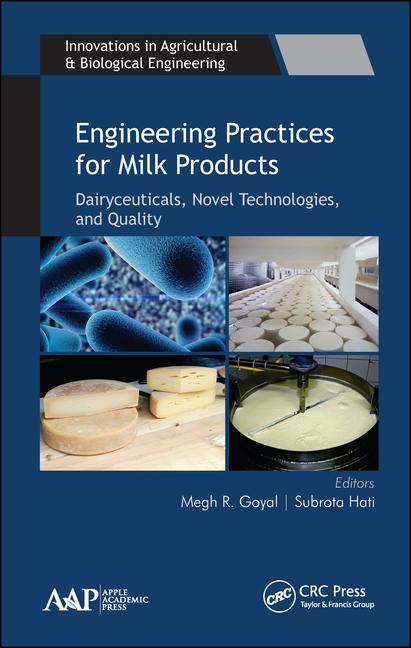How green is thy dairy?
Hilmar Cheese, HP Hood win U.S. Dairy Sustainability Awards
Hilmar Cheese Co. recovers almost 100% of water from incoming milk and uses it for processes such as crop irrigation and landscaping. Hood converts food waste into energy.

Hilmar Cheese Co. was honored yesterday at a ceremony in Washington, D.C. for its environmental sustainability efforts in the fourth annual U.S. Dairy Sustainability Awards, awarded by the Innovation Center for U.S. Dairy. Another dairy processor, HP Hood, was recognized for its achievements to convert food waste into energy.
The Innovation Center also honored dairy farmers. Sustainable practices recognized this year range from water conservation and recovery of food waste to a community-based program that increases access to fresh milk for families in need.
The winners were selected based on results as measured by economic, environmental and community impact, also known as triple-bottom-line success. An independent panel of judges (including Dairy Foods) also assessed the potential for adoption by others, demonstrated learning, innovation, improvement and scalability.
To learn more about the U.S. Dairy Sustainability Awards, the winners and the best practices in place at their operations, visit DairyGood.org. Following are descriptions of each honoree, provided by the Innovation Center.
Hilmar Cheese recovers water to use for irrigation, landscaping
- Outstanding Dairy Processing & Manufacturing Sustainability
Hilmar Cheese Co., Hilmar, Calif. Though Hilmar Cheese Co. makes about 2 million pounds of cheese each day, the company is able to recover almost 100% of water from incoming milk. Then, the water is treated at the plant and used up to three times for processes such as crop irrigation and landscaping. Water reclamation is just one part of a comprehensive sustainability effort. Hilmar Cheese Company’s new headquarters and innovation center was the first dairy building in the nation to receive LEED Platinum certification.
HP Hood collects food waste from restaurants and converts it to energy
- Outstanding Achievement in Community Partnerships
HP Hood LLC and CleanWorld, Sacramento, Calif. HP Hood LLC and CleanWorld found a way to collect and combine HP Hood’s 35 tons per week of waste with food waste from dozens of local restaurants and retailers in a nearby biodigester. The biodigester converts the waste into valuable products for their urban and agricultural neighbors. These products include renewable fuel to power public and private fleets of trucks, rich liquid fertilizer for nearby farms, and power for the digester and local waste management facilities.
Prairie Farms and food bank deliver fresh milk to clients
Honorable Mention. Northern Illinois Food Bank and Prairie Farms Dairy, Geneva, Ill. This food bank and dairy partnered to create the Milk 2 My Plate program, which ensures a fresh supply of milk is available to the families who rely on the food pantry to make ends meet. The community-based program serves as a model for food banks across the country. So far, it has distributed more than 194,000 gallons of milk — 3.1 million servings — to 34 food pantries in the network.
Dairy farmers are creative in their efforts to aid the environment
- Outstanding Achievement in Resource Stewardship
Freund’s Farm, East Canaan, Conn. Freund’s Farm has created a successful side business selling CowPots, biodegradable gardening containers made of composted manure from their herd of 275 dairy cows. Through CowPots, they are reducing phosphorus buildup in their soil, employing 11 full-time and 15 seasonal personnel, and investing $2 million back into the local community. Their commitment does not end there. The farm’s solar panel system produces 100% of its electricity needs.
Honorable Mention. T-Bar Dairy and White Gold Dairy, Porterville, Calif. Tom Barcellos was the first dairy farmer in drought-ridden Central Valley, California, to successfully implement conservation tillage. A combination of no-till and strip-till methods have helped Barcellos manage for water scarcity while allowing him to reduce chemical use, fuel use and the amount of dust particles in the air.
- Outstanding Dairy Farm Sustainability
Dorrich Dairy, Glenwood, Minn. The Vold family dramatically reduced chemical insecticides to control flies — and reduced fly control costs by 85% — when they introduced wasp larvae. This is one part of an integrated pest management system and overall commitment to cow health that contributes to making their operation financially strong and environmentally sound, now and for future generations.
Nobis Dairy Farms, St. Johns, Mich. The Nobis brothers take pride in their practical approach to sustainable practices on their farm. For example, when they transitioned to sand bedding for cow comfort and health in 1974, they had to figure out how to clean and separate the sand from manure. Today, the system they have in place, thanks to research from Michigan State University and McLanahan Corporation, not only solves the problem of sand-laden manure, but it also maximizes nutrient management and eliminates excessive use of fresh water.
Oregon Dairy Farm, Lititz, Pa. In a sustainability meets farm-to-fork experience, the Hurst family composts food waste along with cow manure to produce a rich source of nutrients sold to gardeners; runs solar panels on their grocery store roof to provide 10% of the store’s electricity needs; and operates an anaerobic digester that helps capture methane gas from manure to make electricity and heat for hot water.
Honorable Mention. Alliance Dairies, Trenton, Fla. Situated in the highly sensitive Suwannee River Basin and Manatee Springs region, Alliance Dairies has a comprehensive water management plan that led the dairy to install a first-of-its kind methane digester specifically designed for a freestall barn flush system. As a result, Alliance Dairies is not only protecting the community’s water quality, but it is generating electricity for the community’s use, too.
Sponsors support the U.S. Dairy Sustainability Commitment and the Sustainability Awards program
The Innovation Center for U.S. Dairy was established under the leadership of dairy farmers. The U.S. Dairy Sustainability Awards program recognizes outstanding dairy farms, businesses and partnerships for practices large and small that not only focus on the environment, but add up to promote the health and well-being of consumers, communities, cows, employees, the planet and business.
“This year’s award winners truly are changing the equation for what the industry and consumers think about sustainability,” said Barbara O’Brien, president of the Innovation Center. “Each winner has a unique commitment to sustainability that has strengthened their connections with their communities, ensured the stability of the waterways and wildlife surrounding their properties, and blazed new trails for other dairy farms and businesses to follow.”
“To continue to pass their farms and companies down to the next generation, this year’s award winners have done an excellent job improving upon best practices and serving their communities,” said Paul Rovey, an Arizona dairy farmer, member of the judging panel and chair of Dairy Management Inc™. “I am excited to share their successes so they can easily be adopted by others in the industry.”
The U.S. Dairy Sustainability Commitment and the Sustainability Awards program are supported by gold- and silver-level sponsors. This year’s gold-level sponsors are: the Center for Advanced Energy Studies, DeLaval, DVO, Inc., Elanco Animal Health, InSinkErator, Tetra Pak, U.S. Environmental Protection Agency, World Wildlife Fund and Zoetis. Silver-level sponsors are: the Academy of Nutrition and Dietetics, ChemTreat, DSM Nutritional Products, HDR, Inc., McDonald’s Corporation and Syngenta.
Looking for a reprint of this article?
From high-res PDFs to custom plaques, order your copy today!



